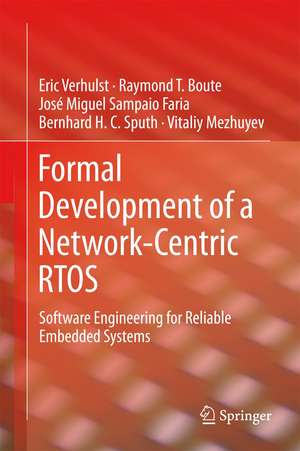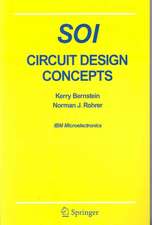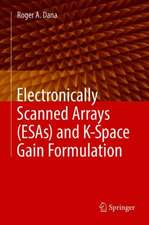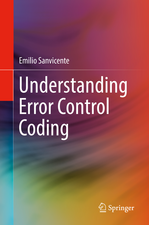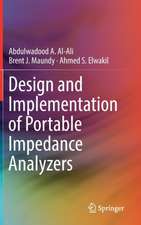Formal Development of a Network-Centric RTOS: Software Engineering for Reliable Embedded Systems
Autor Eric Verhulst, Raymond T. Boute, José Miguel Sampaio Faria, Bernhard H.C. Sputh, Vitaliy Mezhuyeven Limba Engleză Paperback – oct 2014
| Toate formatele și edițiile | Preț | Express |
|---|---|---|
| Paperback (1) | 548.78 lei 38-44 zile | |
| Springer Us – oct 2014 | 548.78 lei 38-44 zile | |
| Hardback (1) | 888.01 lei 6-8 săpt. | |
| Springer Us – 23 aug 2011 | 888.01 lei 6-8 săpt. |
Preț: 548.78 lei
Preț vechi: 677.51 lei
-19% Nou
Puncte Express: 823
Preț estimativ în valută:
105.00€ • 109.65$ • 86.71£
105.00€ • 109.65$ • 86.71£
Carte tipărită la comandă
Livrare economică 11-17 aprilie
Preluare comenzi: 021 569.72.76
Specificații
ISBN-13: 9781489992888
ISBN-10: 148999288X
Pagini: 240
Ilustrații: XVII, 219 p.
Dimensiuni: 155 x 235 x 13 mm
Greutate: 0.34 kg
Ediția:2011
Editura: Springer Us
Colecția Springer
Locul publicării:New York, NY, United States
ISBN-10: 148999288X
Pagini: 240
Ilustrații: XVII, 219 p.
Dimensiuni: 155 x 235 x 13 mm
Greutate: 0.34 kg
Ediția:2011
Editura: Springer Us
Colecția Springer
Locul publicării:New York, NY, United States
Public țintă
ResearchCuprins
Part I: Trustworthy Embedded Systems.- Introduction: OpenComRTOS Role in a Unified Systems Engineering Methodology.- Requirements and Specifications for the OpenComRTOS Project.- Part II: Formal Modeling Fundamentals.- The Choice of TLA+/TLC: Comparing Formal Methods.- Basic Formal Specification in TLA+.- Part III: OpenComRTOS Design.- Formal Modelling of the RTOS Entities.- Final Architecture of the RTOS.- Task Interaction Models in OpenComRTOS.- Results: Code Size and Performance.- Part IV: Appendix.- OpenComRTOS-Suite 1.3 Usage Tutorial.- Foundations for TLA+ and Temporal Logic.- Comparison of Formal Methods.- List of Figures.- List of Tables.- Glossary.- References.- Index.
Textul de pe ultima copertă
This book describes a formally developed, network-centric Real-Time Operating System, OpenComRTOS. One of the first in its kind, OpenComRTOS was originally developed to verify the usefulness of formal methods in the context of embedded software engineering.
Using the formal methods described in this book produces results that are more reliable and higher performance. This methodology is unique because it covers the full range of product development, from requirements and specifications to the final execution platform. It is compatible with safety related engineering standards, such as IEC61508.
Using the formal methods described in this book produces results that are more reliable and higher performance. This methodology is unique because it covers the full range of product development, from requirements and specifications to the final execution platform. It is compatible with safety related engineering standards, such as IEC61508.
- Uses formal methods to develop Network-centric Real-time Operating Systems
- Unified Semantics provides a solid base for model driven systems development and can be tuned to an application-specific, concurrent programming paradigm
- Methods presented enable model-driven, high-reliability, high-performance software & systems engineering
- Compatible with International Electrotechnical Commission (IEC) 61508, the standard governing functional safety of programmable electronic systems.
Caracteristici
Uses formal methods to develop Network-centric Real-time Operating Systems Unified Semantics provides a solid base for model driven systems development and can be tuned to an application-specific, concurrent programming paradigm Methods presented enable model-driven, high-reliability, high-performance software & systems engineering Compatible with International Electrotechnical Commission (IEC) 61508, the standard governing functional safety of programmable electronic systems.
